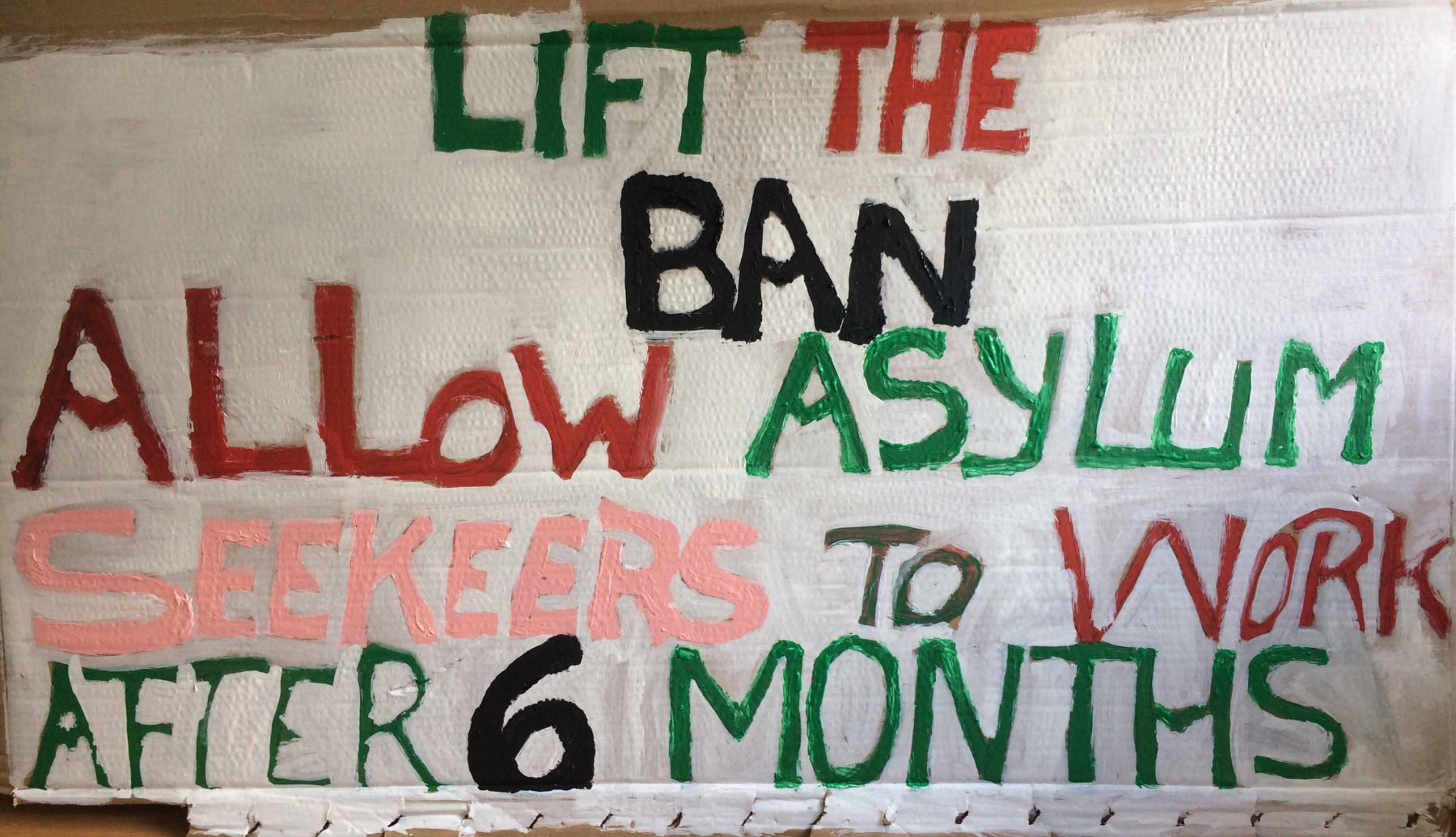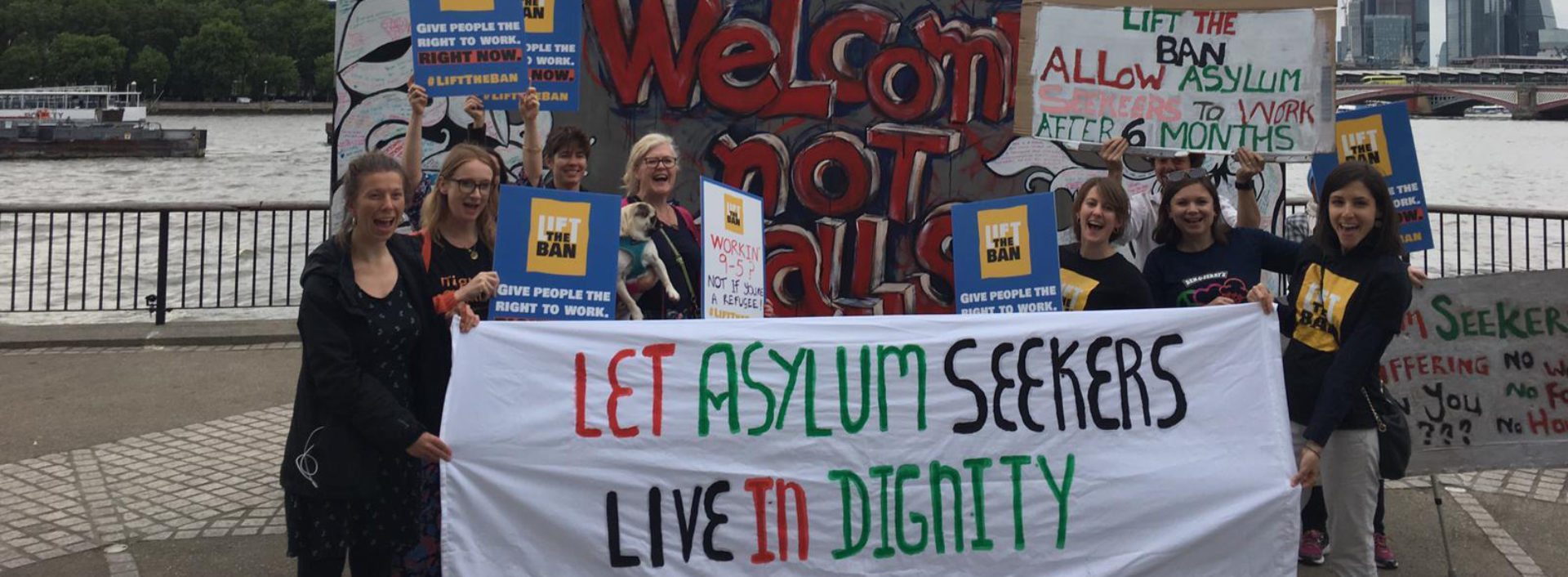Adela is a community organiser with English for Action, an ESOL charity in London that co-ordinates the Hackney Social Action Hub. In this story, Adela describes the lived experience of the people she works with, and how they have come together to challenge the law which says that people seeking refugee status are banned from working whilst they wait months, and often years, for a decision on their asylum claim.
For anyone who has not experienced it themselves, it is hard to imagine what it is like to go through the asylum system in the UK. Having escaped from danger, often mortal, and survived a perilous journey to the UK, asylum seekers are commonly met with hostility, instead of a kind welcome. This is not what you would expect for people who have been through so much.
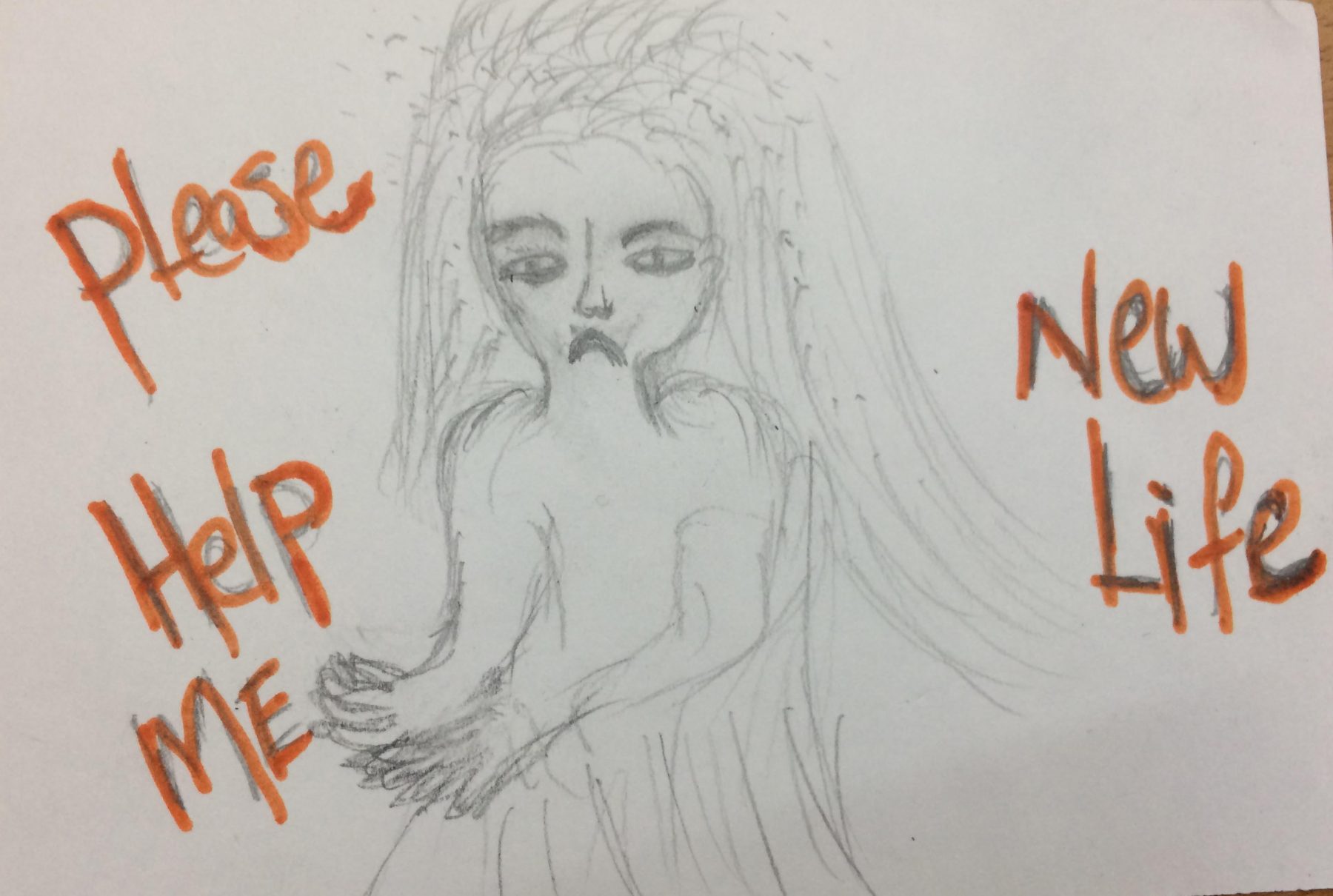
This hostility seeps through the asylum system, which seems designed to be uncomfortable; to discourage people from coming and force those who are already here to leave… The animosity is compounded by asylum cases that customarily take years to process – despite a target of 6 months to deal with a case, which the Home Office had until recently. The deadline has now been abolished and, with a system that appears understaffed and is criticised in the press, an increase of delays may be anticipated.
Now try to put yourself in the asylum seekers’ shoes. Day after day, monotonous, waiting… You cannot work, choose where you live or who with. You might be housed in a hostel together with hundreds of people. All escaping danger, all traumatised and distressed. Families, elderly, disabled. Children running around when you are trying to sleep. People shouting at your children because they are playing. You can’t choose what you eat. You can’t cook. You get served unvarying, dull food day after day. Time-to-time you get mice infestation. The misery in the hostel is palpable, everyone in the same dreary situation. All desperate to put an end to it. It might take a few months; it might take 20 years. Nobody knows. Nobody is giving you any answers.
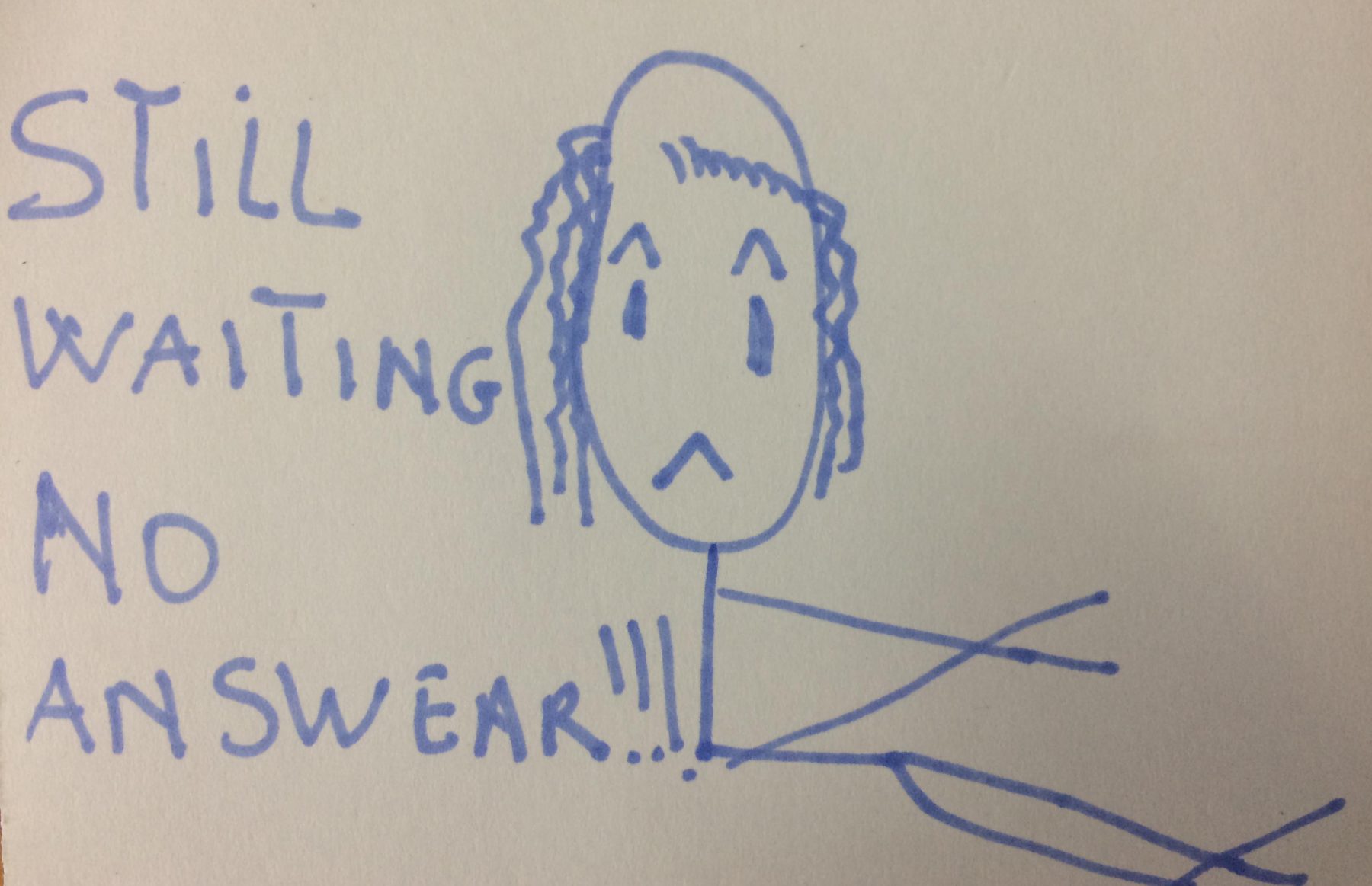
People are poor, with no money for food and clothes. They don’t have own houses to live in. They don’t have human rights.
You live on handouts of about £35 a week. At the same time, you have nothing to do all day; nothing to dedicate yourself to. You cannot work and do not have money to have a hobby. It’s hard to make friends with people because friendships are often forged in the workplace or through free time activities. For a number of asylum seekers there is also a language barrier, which hinders participation in the community.
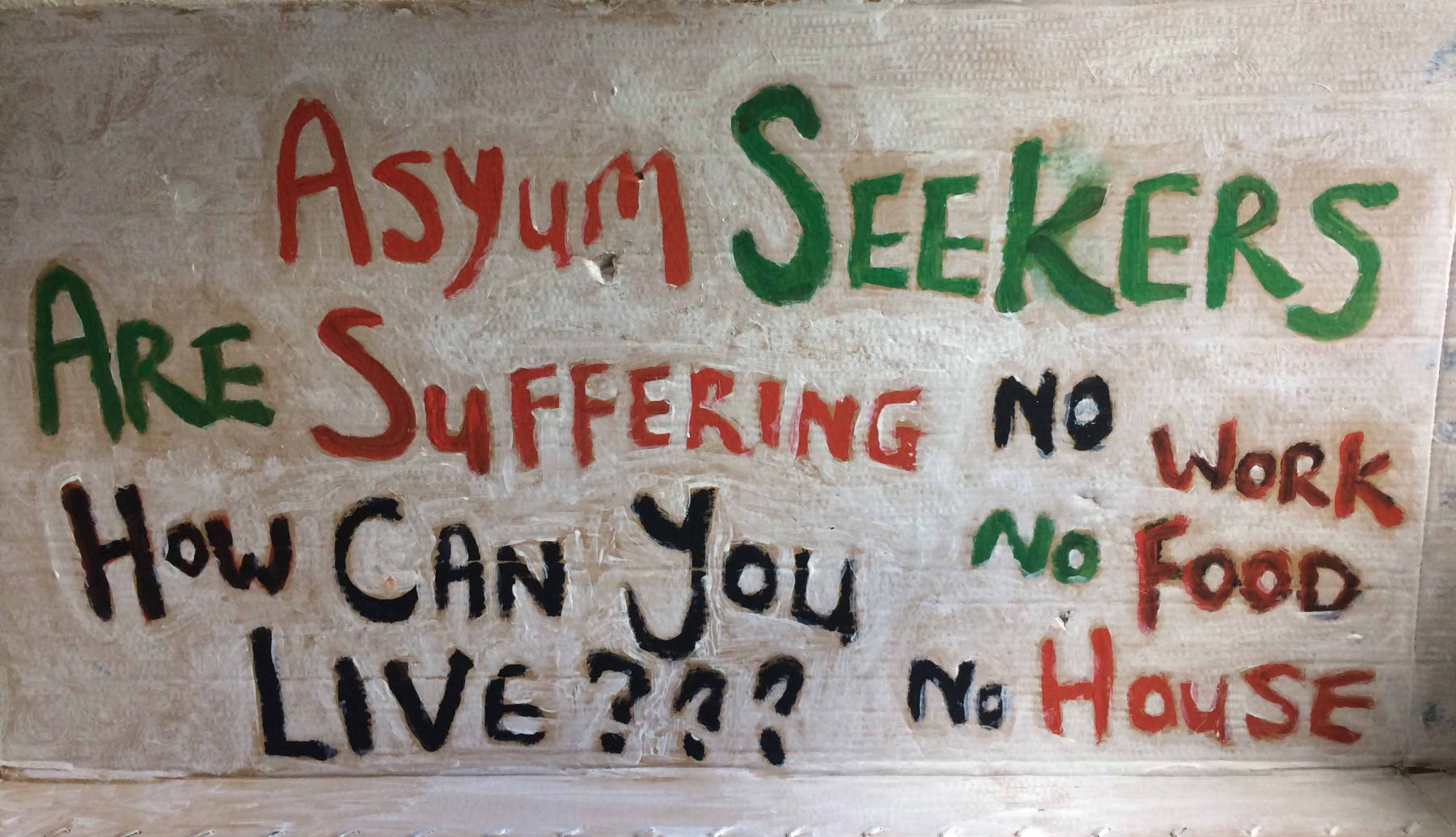
Some of these people are my students in a class I teach for Babel’s Blessing, a grassroots language school, which raises funds by running evening classes in community languages. A few months ago, I trained this class in community organising, using a training developed by Community Organisers, adapted for ESOL students by English for Action. Through the sessions, issues most affecting the students surfaced. There were a number of them, most linked to their experiences of the asylum system.
The training taught the students that to make change happen, we need to build power by establishing relationships with people around common problems. Having thought about ways of doing this, the students decided that we should contact organisations working to tackle issues caused by the flawed asylum system. Together with Praxis, a community centre where the classes take place, we contacted Refugee Action (RA) to see if working together might be possible.
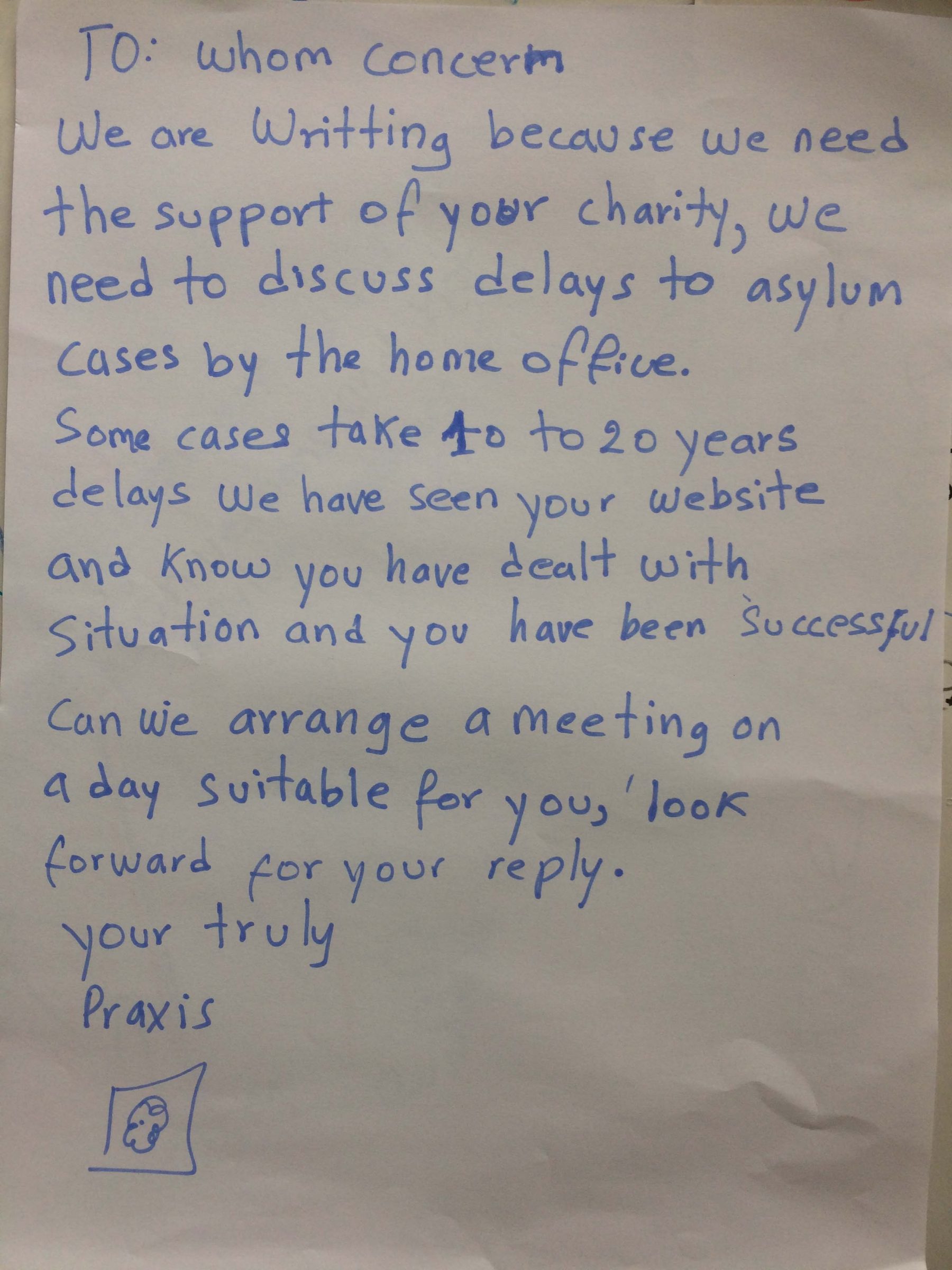
Refugee Action came to our class and we talked about what we could do. We spoke about ‘Lift The Ban’, a campaign started by Refugee Action to change the law to allow asylum seekers to work after six months of starting their asylum claim. The students felt they would love to take part in it, and immediately started coming up with ideas of what they could do.
The children are really sad because they don’t have enough food and can’t have fun.
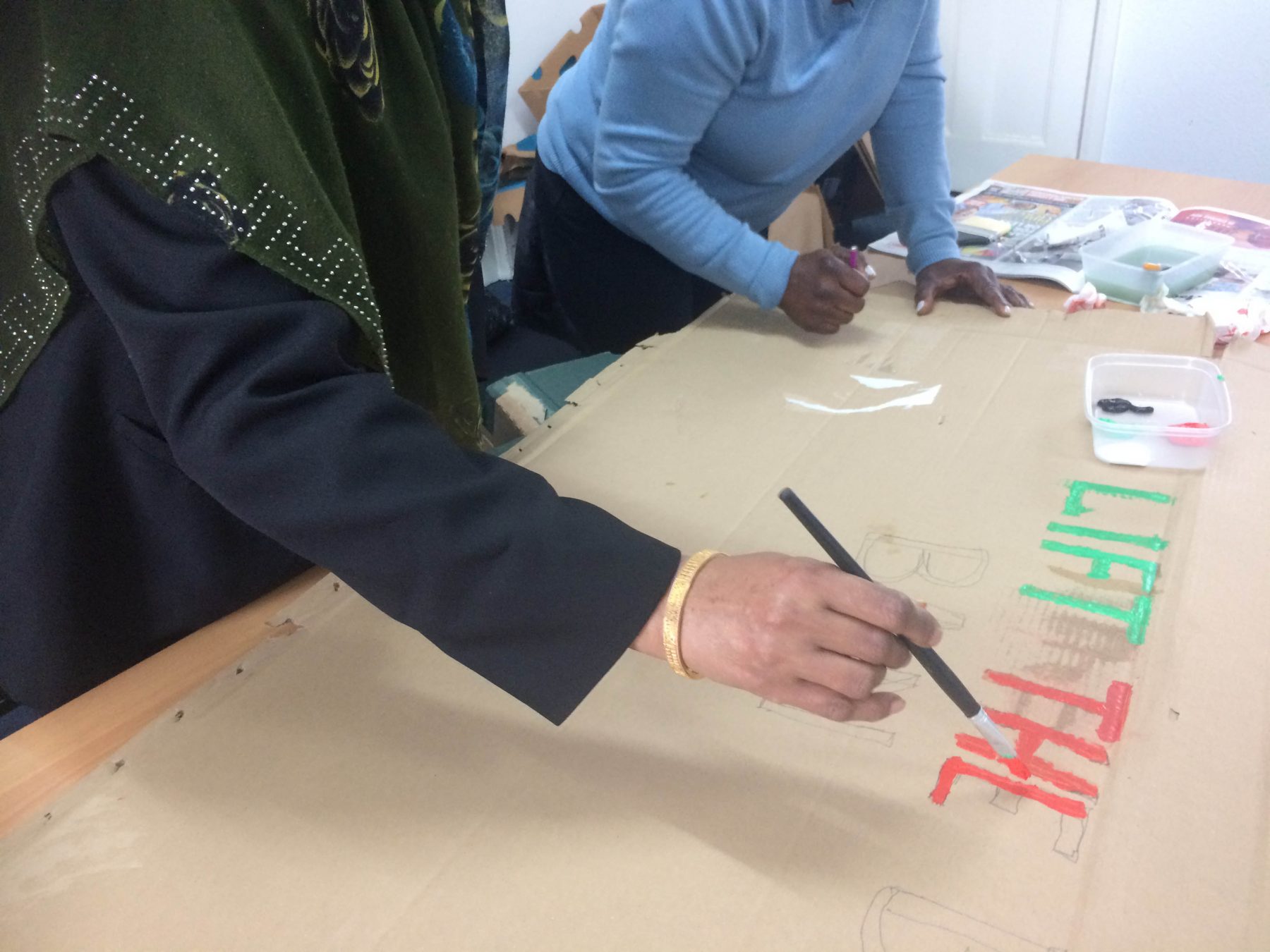
The students made banners expressing the impact of not being able to work and took these to several ‘Lift the Ban’ actions. They wrote: ‘No work, no food, no house. How can you live?’ and ‘Let asylum seekers live in dignity’. They also made paintings through which they expressed the pain they feel, as they wait endlessly without being able to support themselves.
To address the person who has the ultimate power to make decision about the law, directly, they wrote postcards to the Home Secretary, saying things like: “We have skills, we will like to contribute to the country” and “People are poor, with no money for food and clothes. They don’t have own houses to live in. They don’t have human rights.” “The children are really sad because they don’t have enough food and can’t have fun.” “Please help asylum seekers. Freedom. Freedom.”
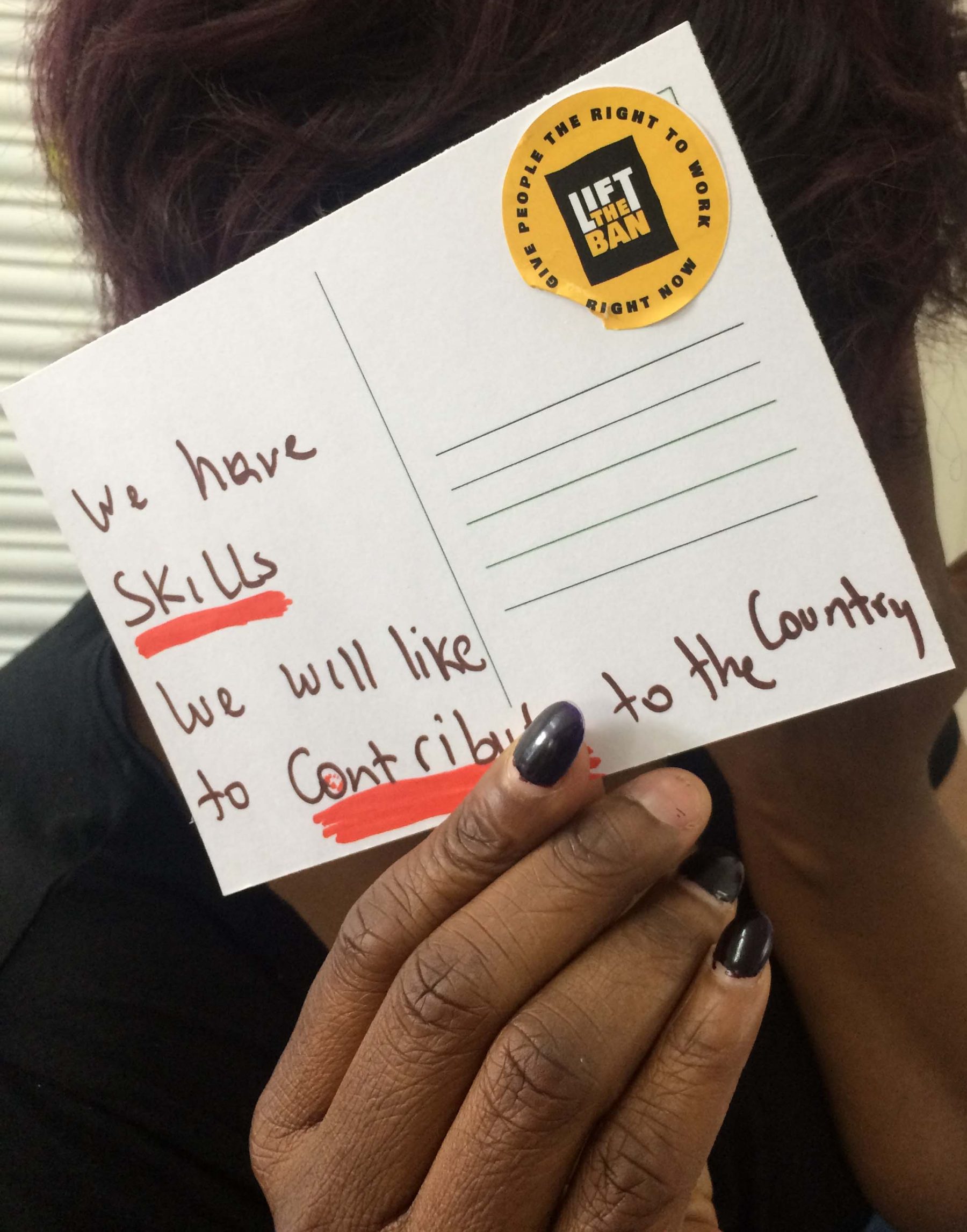
Even though the campaign has had considerable support from diverse parts of the political spectrum and society, we are still fighting to lift the ban.
Find out more about English for Action Hackney Social Action Hub HERE.
